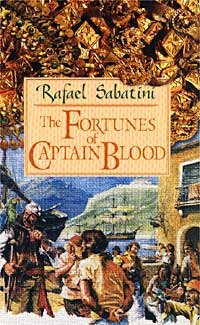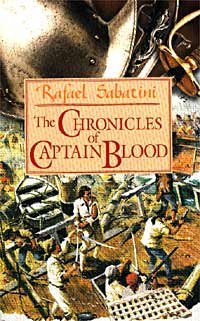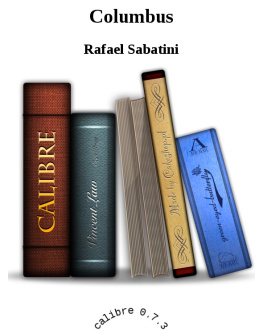Rafael Sabatini - Mr. Dewbury's Consent
Here you can read online Rafael Sabatini - Mr. Dewbury's Consent full text of the book (entire story) in english for free. Download pdf and epub, get meaning, cover and reviews about this ebook. genre: Prose. Description of the work, (preface) as well as reviews are available. Best literature library LitArk.com created for fans of good reading and offers a wide selection of genres:
Romance novel
Science fiction
Adventure
Detective
Science
History
Home and family
Prose
Art
Politics
Computer
Non-fiction
Religion
Business
Children
Humor
Choose a favorite category and find really read worthwhile books. Enjoy immersion in the world of imagination, feel the emotions of the characters or learn something new for yourself, make an fascinating discovery.

- Book:Mr. Dewbury's Consent
- Author:
- Genre:
- Rating:4 / 5
- Favourites:Add to favourites
- Your mark:
- 80
- 1
- 2
- 3
- 4
- 5
Mr. Dewbury's Consent: summary, description and annotation
We offer to read an annotation, description, summary or preface (depends on what the author of the book "Mr. Dewbury's Consent" wrote himself). If you haven't found the necessary information about the book — write in the comments, we will try to find it.
Mr. Dewbury's Consent — read online for free the complete book (whole text) full work
Below is the text of the book, divided by pages. System saving the place of the last page read, allows you to conveniently read the book "Mr. Dewbury's Consent" online for free, without having to search again every time where you left off. Put a bookmark, and you can go to the page where you finished reading at any time.
Font size:
Interval:
Bookmark:
Mr. Dewbury's Consent
By Rafael Sabatini
I am the humblest-minded man in the world, but if you should wound my feelings my humility is at once transformed into pride and self-assertiveness, my habitual meekness converted into retaliatory arrogance.
Thus, when Mr. Dewbury pointed out to mewith that brutality for which he is notoriousthat I was a young man of idle ways, that my means were too restricted to permit of idleness, and that consequently he would oppose my wedding his niece and ward, I did not adopt a humble or conciliatory tone, I didn't swear to achieve great things so as to become worthy of the union to which I aspired; I ate no humble-pie. I made no promises; I rose up in all the panoply of outraged pride, and turned to rend Mr. Dewbury.
I pointed out to him that to describe me as idle was to distort facts, and that if my means were restricted, they were at least sufficient to keep a loving couple from absolute want. Incidentally I threw it out that I belonged to the great aristocracy of geniusat which Mr. Dewbury audibly sniffedand that my name was a name likely to be heard of presently.
But the rending of Mr. Dewbury was more easy to project than to achieve. Alas! The very stupidity of the man was an impenetrable bulwark, a demoralising array of chevaux-de-frise against which I hurled the onslaught of my logic and my eloquence, only to fall back baffled.
I could lure him into no fresh statement; like the dull-witted creature he was he took refuge in repeating the one odious sentence that he had coined to describe my conditiona sentence that gained in neither point nor effectiveness from being repeated. Mr. Dewbury's money was made for him in a factory, and from the rudeness he displayed on the painful occasion of which I write, I might reasonably adduce that his manners were of like origin.
I may have been foolish to have adopted the attitude of retaliationin short, to have lost my temperfor when you hope to become a man's nephew-in-law it is perhaps as well to conciliate him; when you have become his nephew-in-law you please yourself.
"The profession of letters, sir," said I, with the loftiness of the broad-minded man when drawn to dissent from one whose views are narrow, "is a profession that has been followed by men of an eminence which neither you nor I may hope to attain."
I was by no means sure that I should not attain it, but for politic reasons I thought it as well to couple myself with him.
"And as for my being idle," I repeated, "the statement is quite inaccurate. I am a student of men."
"You may study men as long and as closely as you please," said he. "That does not concern me. But I certainly intend to prevent your pursuing the study of woman in the person of my niece." He delivered himself of this with irritating smugness; to his benighted soul it may have commended itself as a witticism. "You are an idle young man," he said again with odious insistence, "and idle young men incline to vice."
"If a man incline to vice, Mr. Dewbury, he will be vicious whether idle or not."
"I do not wish to be drawn into an argument."
"That," said I, "is the last defence of one who has no argument."
It was not a wise thing to have said, perhaps. But then Dewbury was by no means an old man. He was under forty, and there was little grey in his hair. There was, however, a devilishly truculent tongue in his head, and the brutal discourtesy with which he brought our discussion to a close left me in no doubt as to the hopelessness of my condition.
Perhaps I was unnecessarily despondent, for, after all, so long as the girl be true, what signify others? But that afternoon it seemed to me that mine was a poor, blighted young life. I resolved to leave Stollbridge at once and return to town. If I had remained so long in that little provincial place it had been solely because Mildred dwelt there. Now that I was to see Mildred no more the attractions faded.
But next morning I received a note from hera hurried, panic-stricken scrawlto the effect that if the weather were fine she would be on the river that afternoon. It fortunately was fine, and hot, even for July. So after lunch I took the canoe, and a couple of miles up-stream I came upon her punt made fast under a tree of very usefully overhanging branches.
I went alongside, and passing from the canoe to the punt I assisted her to make tea. She says that I only looked on while she made it. She is probably right. Mildred is a distinctly pretty girl, and I know of few pursuits more engrossing than the contemplation of her.
At last, when she had handed me a cup, and settled herself in the rainbow of her cushions,
"Paddy," said she very sorrowfully, "the uncle has forbidden me to speak to you again."
"This disobedience," said I, "is very sweet."
"But what happened? What did he say to you?"
I told her, and she was a very angel in her indignation.
"But you are anything but idle, Paddy," she cried, and I felt that I had never really loved Mildred until that moment. She was the one person in all the world who understood me.
"That is precisely what I told your uncle, and I confirmed it by arguments that no man in his senses could have failed to appreciate. He, however," and I waved my hand widely, "refuses to look upon my occupation in the light of serious work."
"Paddy, you must do something to prove him wrong."
"Mount Parnassus is lofty," I commented dolefully. "Its heights are steep and difficult to scale even for the stronger and better equipped than I. I may be years reaching the summit; I may never reach it; and, anyhow, I can't wait."
"What I mean," she explained, "is that you should do something really useful; something that he would consider useful. Go into business."
"I have no head for figures. I should only lose the little that I have."
"A profession then," she insisted.
"What professions are there? For the Church I have no vocation; law and medicine are already overcrowded; besides, they blunt a man's individuality."
"Is there nothing else?"
"There is hair-dressing and chiropodyboth estimable professions in their way, only this is an age of prejudices, and perhaps you wouldn't care to marry me then."
"How can you laugh, Paddy?"
"Laughter," said I oracularly, "is one of sorrow's most terrible expressions. My poor Millie, I was never meant to be useful in that sense. I am just a dreamer, and to wake me would be to spoil me, or else set me to spoil other things, which might be worse."
"You are the dearest madman in all the world."
"Thanks, Mildred," I sighed gratefully.
"I'll be of age in a year," she reflected.
"And you'll wait, Millie?"
I find a difficulty in chronicling her reply, for she expressed herself without the use of words. But it convinced me, and it was very comforting and fortifying even if we did nearly upset the punt.
So much consolation did I gather from that interview that I went up to town in a moderately cheerful spirit on the morrow, and in a cheerful spirit did I write to her twice in the ensuing week. But the second of these letters was returned to me enclosed in one of the most discourteous epistles that I have ever read, from her uncle. Now for all that I had every reason to be pleased with the composition of my letters to Mildred, I hardly desired for them such publicity as this, so I wrote no more.
It was while I was a prey to my fresh sorrows at this interruption of our correspondence, that Jessie Willoughby came to the rescue like a fairy godmother. I was wandering aimlessly down Piccadilly one sunny afternoon when she suddenly confronted me.
"Paddy!"
Now, although she was my sister's dearest friend and my sometime playmate grown into a sufficiently beautiful woman to rejoice the sight of any discriminating man, so dejected was my condition that her appearance afforded me no pleasure. Still I was polite.
Font size:
Interval:
Bookmark:
Similar books «Mr. Dewbury's Consent»
Look at similar books to Mr. Dewbury's Consent. We have selected literature similar in name and meaning in the hope of providing readers with more options to find new, interesting, not yet read works.
Discussion, reviews of the book Mr. Dewbury's Consent and just readers' own opinions. Leave your comments, write what you think about the work, its meaning or the main characters. Specify what exactly you liked and what you didn't like, and why you think so.






